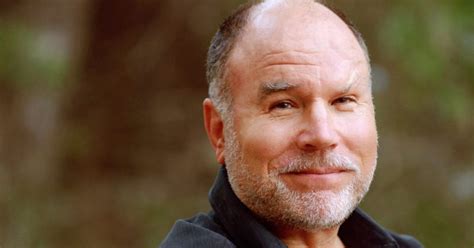A Quote by Fred Rogers
Feeling good about ourselves is essential in our being able to love others.
Related Quotes
If we don't love ourselves, we would not love others. When someone tell you to love others first, and to love others more than ourselves; it is impossible. If you can't love yourselves, you can't love anybody else. Therefore we must gather up our great power so that we know in what ways we are good, what special abilities we have, what wisdom, what kind of talent we have, and how big our love is. When we can recognize our virtues, we can learn how to love others.
But how can we love someone if we don't like him? Easy-we do it to ourselves all the time. We don't always have tender, comfortable feelings about ourselves; sometimes we feel foolish, stupid, asinine, or wicked. But we always love ourselves: we always seek our own good. Indeed, we feel dislike toward ourselves, we berate ourselves, precisely because we love ourselves; because we care about our good, we are impatient with our bad.
We receive mixed messages about taking good care of ourselves. Love thy neighbor as thyself means to love thyself and thy neighbor. Yet, self-love often is confused with selfishness and conceit. We are selfish when we do not love and accept ourselves, and attempt to take from others to fill the emptiness. Conceit indicates low self-worth and an attempt to conceal it. It is difficult to extend to others what you have not been able to give yourself. Take good care of yourself so you can care about the rest of us.
It is difficult to see ourselves as we are. Sometimes we are fortunate enough to have good friends, lovers or others who will do us the good service of telling us the truth about ourselves. When we don't, we can so easily delude ourselves, lose a sense of truth about ourselves, and our conscience loses power and purpose. Mostly, we tell ourselves what we would like to hear. We lose our way.
The remarkable thing is that we really love our neighbor as ourselves: we do unto others as we do unto ourselves. We hate others when we hate ourselves. We are tolerant toward others when we tolerate ourselves. We forgive others when we forgive ourselves. We are prone to sacrifice others when we are ready to sacrifice ourselves.
In our concern for others, we worry less about ourselves. When we worry less about ourselves an experience of our own suffering is less intense. What does this tell us? Firstly, because our every action has a universal dimension, a potential impact on others' happiness, ethics are necessary as a means to ensure that we do not harm others. Secondly, it tells us that genuine happiness consists in those spiritual qualities of love, compassion, patience, tolerance and forgiveness and so on. For it is these which provide both for our happiness and others' happiness.
A relationship that has any depth and power at all will inevitably penetrate our usual shield of defenses, exposing our most tender and sensitive spots, and leaving us feeling vulnerable - literally, 'able to be wounded.' To love, in this sense, is to open ourselves to being hurt. The dream of love would have us believe that something is wrong if a relationship causes us pain. Yet trying to avoid the wound of love only creates a more permanent kind of damage. It prevents us from opening ourselves fully, and this keeps us from ever forming a deeply satisfying intimate connection.
It seemed an advantage to be traveling alone. Our responses to the world are crucially moulded by the company we keep, for we temper our curiosity to fit in with the expectations of others...Being closely observed by a companion can also inhibit our observation of others; then, too, we may become caught up in adjusting ourselves to the companion's questions and remarks, or feel the need to make ourselves seem more normal than is good for our curiosity.


































